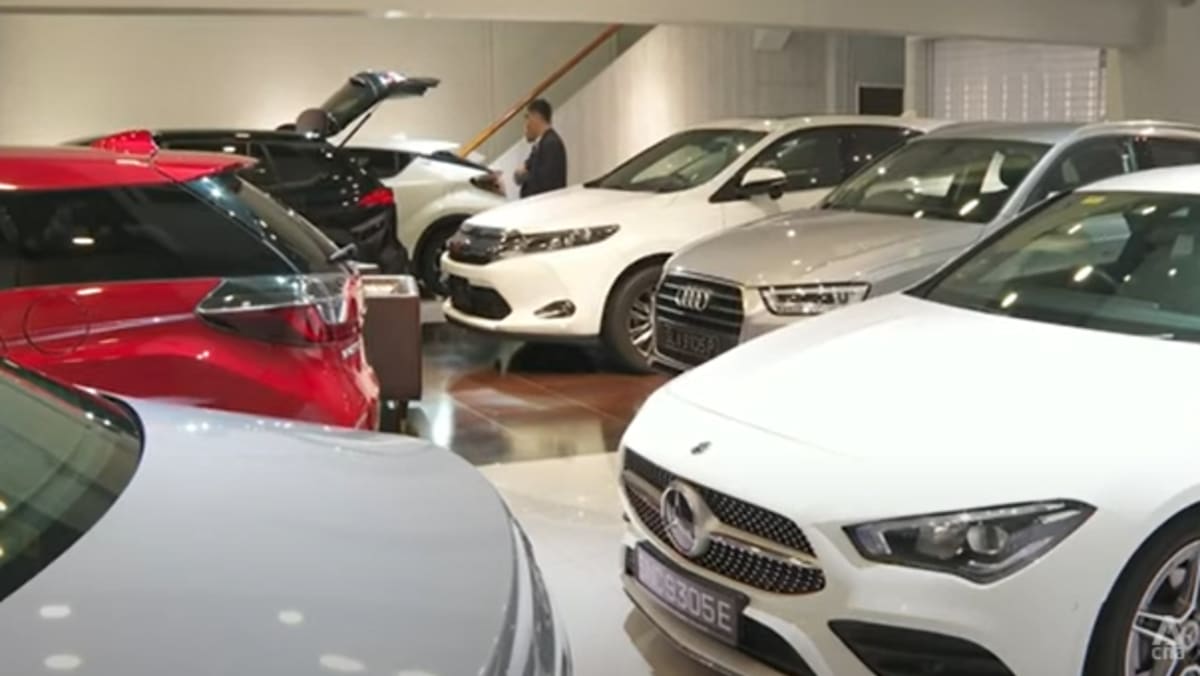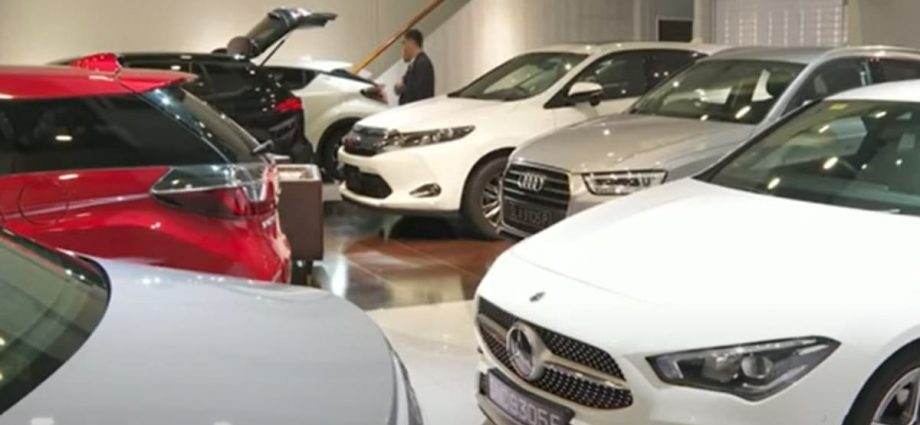
INCREASE IN SALES OF CAT A CARS
Car dealers said they have seen enquiries and sales of Category A vehicles increase since the new tax.
One such parallel importer Cars & Stars said that while recent buyers were less interested in higher-end cars, its sales of Category A vehicles have jumped by up to 30 per cent.
“Since the last round of tax adjustment, we noticed a significant dip in enquiry volume on luxury vehicles that were directly impacted by this tax exercise,” said Ms April Koh, the car dealer’s general manager.
“I would say it resulted in more conversions to Cat A vehicles, all the way to the very last bid.”
At Vin’s Automotive, enquiries and sales of its luxury cars dropped by at least 50 per cent. However, it has also seen a jump in interest in brand new Category A vehicles, as well as used cars.
The firm said dealers are scrambling to adjust as the tax hike made the overall cost of owning a higher-end car more expensive overnight.
WHY DID CAT B PREMIUMS SOAR?
To bring that price tag down, car dealers used up the Open Category COEs they already had on hand, as the prices were already locked in, said Vin’s Automotive’s director Galvin Khong.
“A lot of car dealers that had Open Category beforehand, will trade these COEs for super car buyers,” he said.
“Originally when they held these Open Category COEs, they were actually perhaps reserving them for some other car buyers. So because of these Open Categories being sold away, they needed to bid aggressively to replace these COEs for their customers.”
Mr Khong said this is among the causes of Category B also closing at a record bid price of S$116,201 last month.
Assoc Prof Ong said that pent-up demand could be another reason.
“Higher net worth individuals who may have been waiting to own a Cat B car can afford to pay for the luxury tax and would be able to bid for heavy prices, no matter how high. And this is perhaps one of the main reasons that is driving the price,” he said.
CAR SHARING AND RENTALS
As COE prices shoot up across the board, more people are getting priced out of car ownership.
Observers said that as a result, car-sharing or rental companies are likely to see an increase in customers, which may lead to the firms’ purchase of more Category A vehicles to boost their fleets.
“As the cost of ownership of cars increases, consumers will be much more savvy in thinking whether they are going to buy a car or … basically share a car,” said Assoc Prof Ong.
“That’s the reason we see that perhaps most of the Cat A car buyers might even be car-sharing companies or rental companies, whereby the drivers could be Grab drivers.”
Industry watchers who spoke to CNA expect COE prices to stay high, as the monthly supply is expected to remain in the low to mid-hundreds for the next two years, based on historical registration figures.
“I believe that the high COE price is likely to maintain or at least grow at a slower pace, mainly because demand will still be there,” said Assoc Prof Ong.
“It’s unlikely that those who own cars will give up owning cars. The only thing I might see is that there may be more demand for Cat A cars.”

